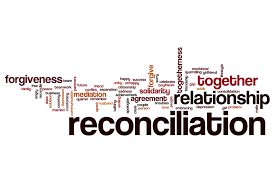Understanding Massachusetts Reconciliation Agreements
By Anthony C. Adamopoulos
When couples face serious marital challenges, divorce may seem inevitable — but some still hope for reconciliation. In Massachusetts, a Reconciliation Agreement (sometimes called a “postnuptial” or “marital” agreement) can help couples attempt to rebuild their marriage while also preparing for the possibility of divorce.
What is a Reconciliation Agreement?
A Reconciliation Agreement is a written contract between spouses that can outline the steps or conduct needed for the marriage to continue, while also setting out each partner’s rights and obligations if the marriage ultimately ends in divorce. By addressing both expectations for the marriage and financial arrangements in advance, couples reduce uncertainty and potential conflict — while keeping the door open to healing the relationship.
Benefits of a Reconciliation Agreement
- Offers a structured path forward while preserving hope of reconciliation.
- Provides financial clarity, addressing issues such as support and property division.
- Helps reduce the risk of a drawn-out, costly court battle if divorce does occur.
Who Might Consider One?
A Reconciliation Agreement may be appropriate where spouses want to try again at making the marriage work, but also want the security of knowing there is a clear, fair plan if reconciliation is not successful.
Important Legal Considerations in Massachusetts
- Such agreements must meet strict legal requirements to be enforceable.
- They must be reviewed and approved by a Family Court judge.
- Judges will only approve agreements that are fair, include required provisions, and were signed voluntarily.
- Because of these requirements, it is not advisable for spouses to draft the agreement on their own.
How Mediation Can Help
Mediators experienced with Massachusetts law can provide a safe, neutral environment for couples to discuss their concerns and draft the first version of a Reconciliation Agreement. Mediation helps ensure that both spouses’ voices are heard, and that the agreement reflects fairness and clarity before being presented for legal approval.
With this approach, there can be both hope for saving the marriage and a thoughtful plan if reconciliation is not possible.
Anthony C. Adamopoulos
Divorce Mediator & Certified Collaborative Attorney
Available Statewide by Zoom
📍 Topsfield, MA | ✉️ acaboston@aol.com | ☎️ (978) 744-9591


